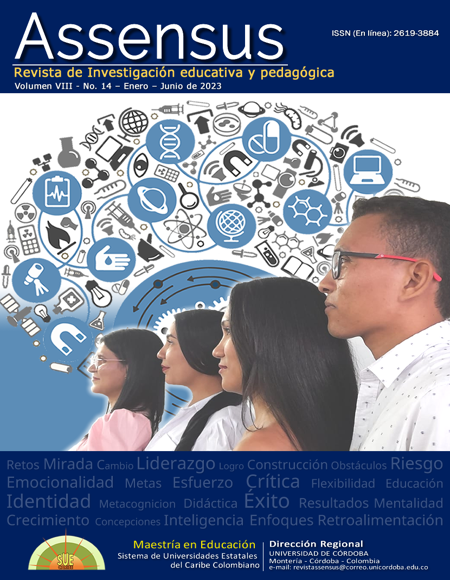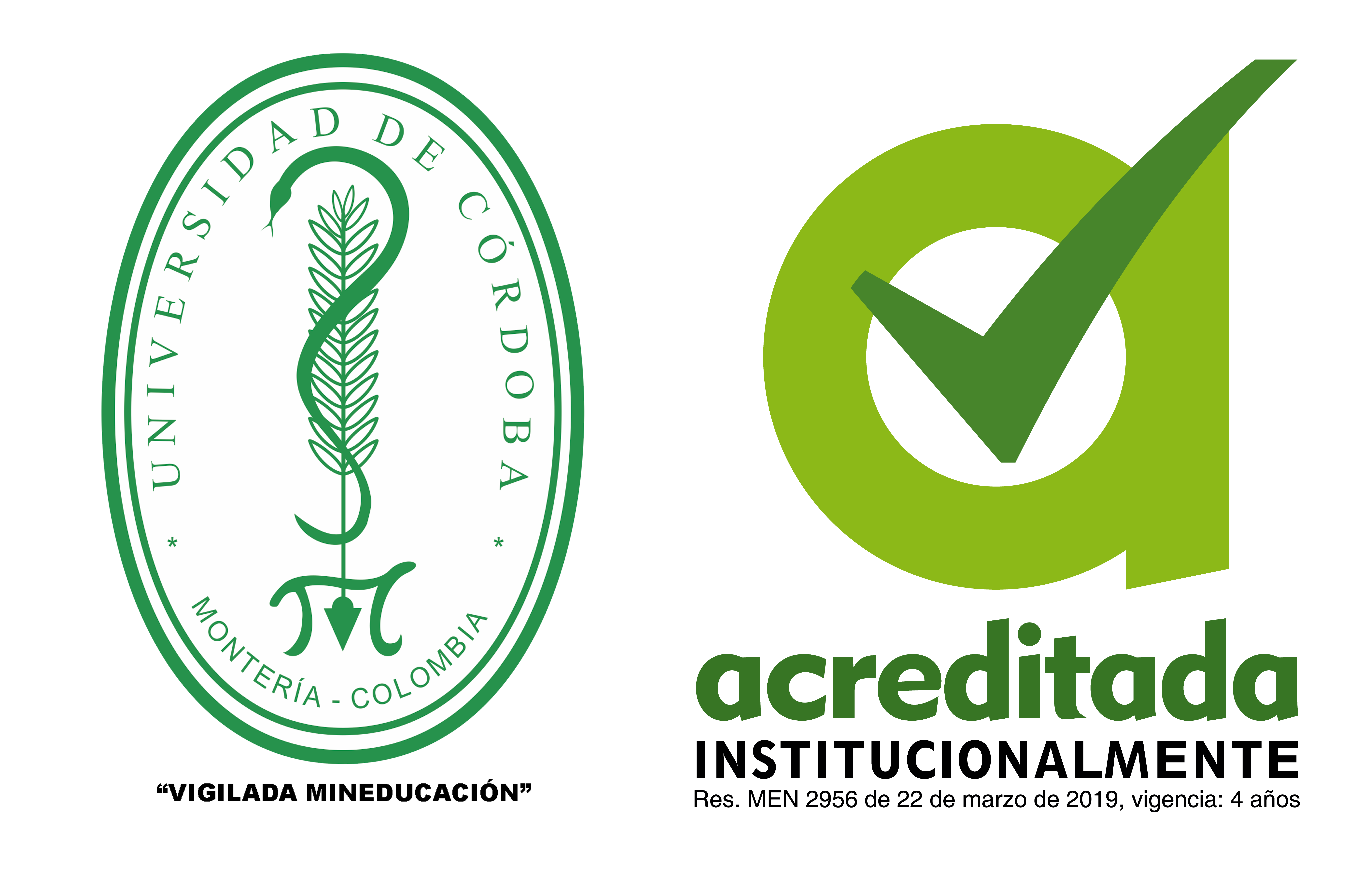The metacognitive perspective as a scenario of inquiry and understanding of the fundamentals in cognitive and affective neuroscience applied to university teaching and learning
La perspectiva metacognitiva como escenario de indagación y comprensión de los fundamentos en neurociencia cognitiva y afectiva aplicados a la docencia y el aprendizaje universitario

This work is licensed under a Creative Commons Attribution-ShareAlike 4.0 International License.
The Assensus journal has a Creative Commons license. The citation, use and partial or total reproduction of the contents is authorized by citing sources. For more information, see https://creativecommons.org/licenses/by-sa/4.0/deed.en
Show authors biography
This article refers to the activity of preliminary conceptual inquiry of a study that arose from the need to address university teaching with alternative and renewed criteria and strategies, from the understanding that teachers have about their work and how it sustains it. The reflections derived from the first stage are delivered. It is intended to analyze the relationship that from this teaching awareness can be established between the different cognitive - emotional - communicative dimensions of human development and the management of university environments better scientifically oriented, where the effectiveness of learning is manifested as appropriation of habits of autonomous, self-motivated and continuous learning in students at the level of higher education and that this appropriation extends to the teaching staff and the level institutional in a perspective of organizational metacognition perspective.
The research process is proposed from premises and foundations of the findings in neuroscience of learning, in its affective and cognitive dimensions and a framework of interrogation is structured that subtly involves metacognition as a superior capacity and organizational learning, connecting a set of basic assumptions and a qualitative research route. Observations, self-reports and narratives are combined from in-depth interviews applied to professors and second-year students of educator training programs at the Faculty of Education of the University of Córdoba-Colombia, defined as case studies. It is expected to contribute to the construction of a contextual framework of conscious understanding of the applications of neuroscientific contributions to university teaching and to institutional organization and learning.
Article visits 298 | PDF visits
Downloads
- Bisio, M., Castell, S., Espinoza, T. Buitrago, J. (2018). Nuevos Paradigmas de Aprendizaje en las Organizaciones, 1ªEd. colaborativa. Coord Carlos Merino, Eva Martín ICA2 Innovación, conocimiento e innovación Fundación Red CEDDET
- Bruner, E. & Rangel de Lázaro G. (2014). Midsagittal brain variation and MRI shape analysis of the precuneus in adult individuals. PubMed. Journal of Anatomy. https://pubmed.ncbi.nlm.nih.gov/24397462/
- Fagnant, A & Crahay, M. (2011). Theories of mind and personal epistemology: Their interrelation and connection with the concept of metacognition. European Journal of Psychology of Education. 26. 257-271. 10.1007/s10212-010-0045-2.
- Dehaene, S. (2014). Consciousness and the Brain. Deciphering how the brain codes our thoughts. New York: Viking Penguin.
- Dehaene, S. (2022). ¿Cómo Aprendemos?: La mirada neurocientífica cognitiva. Webinar. Diálogos en red. Red global de aprendizaje. Uruguay.
- Dennet, D, (1991). La conciencia explicada una teoría interdisciplinar. Ediciones Paidós.
- Gazzaniga, M. S. (2004). The cognitive neurosciences. MIT Press.
- Guzmán-R., Ríos-Muñoz & L., Abundis, A. (2018). Corteza del cíngulo anterior: Un área imprescindible para el control cognitivo y emocional. Research gate.
- Barrios. T, H., Gutiérrez de Piñeres, C.(2020). Neurociencias, emociones y educación superior:
- una revisión descriptiva. Revista Estudios Pedagógicos XLVI, N° 1: 363-382
- Lieberman, M.D. (2007) Social Cognitive Neuroscience: A Review of Core Processes. Annual Review of Psychology, 58, 259-289
- López Zapata, E., García Muiña, F. E., & García Moreno, S. M. (2012). De la organización que aprende a la organización ambidiestra: Evolución teórica del aprendizaje organizativo. Cuadernos de Administración, 25(45), 11-37.
- Matsumoto-Royo, K., Ramírez-Montoya, M.-S., & Conget, P. (2021). Diseño y validación de un cuestionario para evaluar oportunidades de práctica pedagógica, metacognición y «lifelong learning», brindadas por los programas de formación inicial docente. Estudios Sobre Educación, 41, 131-161. https://doi.org/10.15581/004.41.009
- Ochsner K.N. & Olsson A. (2008). The role of social cognition in emotion. Trends in Cognitive Sciences, 12, 65-71.
- Piemontesi, S. (2010). Procesos en Neurociencia Social Cognitiva y Afectiva para la Comprensión e Interacción Social: un Marco Integrador. Revista Argentina de Ciencias del Comportamiento, vol. 2, núm. 3, 2010, pp. 30-44. Universidad Nacional de Córdoba, Argentina
- San Emeterio, César. (2004). Los mecanismos y procesos de metacognición del sistema gerencial de las organizaciones y su relación con los procesos de aprendizaje organizacional". Revista Gestión y estrategia: La práctica organizacional contemporánea: planteamiento. Ensayo. Número 25. p. 22-32. Universidad Autónoma Metropolitana, México
- Scharff, L., and Draeger, J., & Verpoorten, D. (2017). Exploring Metacognition as a Support for Learning Transfer. Teaching and Learning Inquiry. 5 (1). https://doi.org/10.20343/5.1.6
- Senge, P. (1990). The fifth discipline: The art and practice of the learning organization, Doubleday, New York. Versión en castellano (1992): La quinta disciplina, Granica, Barcelona.
- Sierra, P.I. (2022). La confianza, la conciencia de sí mismo y las transformaciones en el pensamiento del profesorado, manifestaciones y enfoques frente al aprendizaje y la formación. Capítulo en Confianza, Ética y Nueva Pedagogía. Tríada en el desafío para el cambio en educación. Fondo Editorial Universidad de Córdoba. Montería-Córdoba Colombia
- Vigotsky, L., Cole, M. (1978). Mind in Society: Development of Higher Psychological Processes, Cambridge, Harvard University Press.
- Williams, A. W., Aggarwal, Ishani & Malone, Thomas. (2015). Collective Intelligence and Group Performance. Current Directions in Psychological Science. 24.
- Williams, A. W., Aggarwal, I., & Malone, T. W. (2015). Collective intelligence in teams and organizations. Handbook of collective intelligence.



